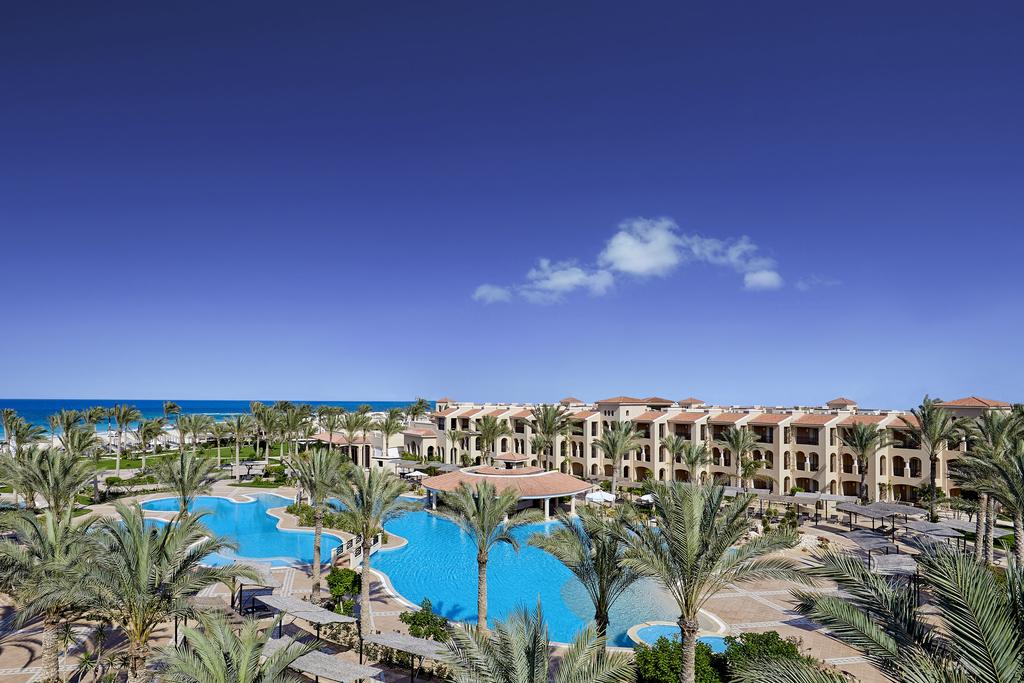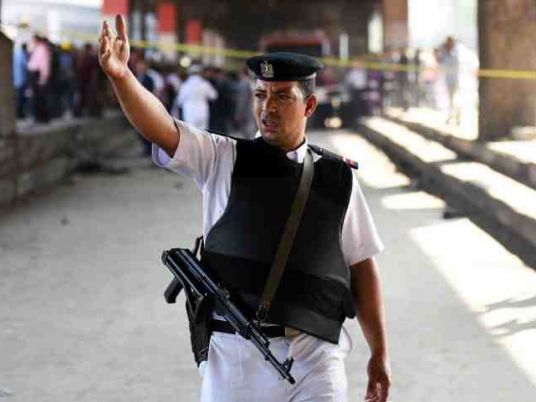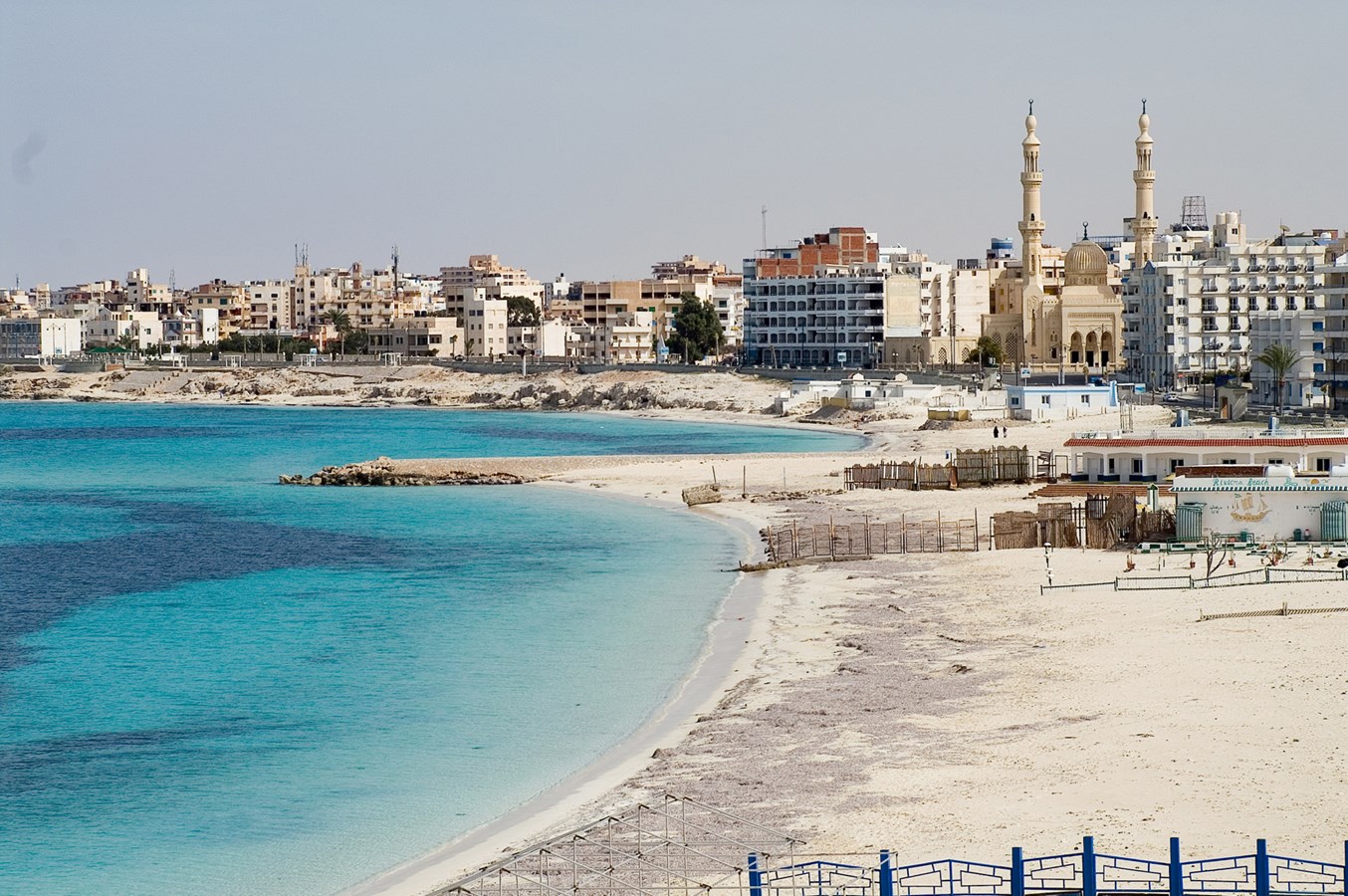Following the triumph of the Allied powers over Erwin Rommel’s Panzer army in 1942, Winston Churchill famously declared, “Before Alamein, we had no victory, and after it we had no defeats.” Unfortunately, those sentiments cannot be shared by residents of Alamein—Bedouins whose lives today remain heavily affected by the millions of landmines left over from the infamous battles waged almost 70 years ago.
Despite being annually observed on 4 April, the United Nations’ International Day for Mine Awareness and Assistance in Mine Action was marked yesterday by a gathering of UN representatives, diplomats, and members of foreign and local press near Alamein, a town situated on Egypt’s north-western coast. “It’s difficult to schedule events of this nature simultaneously around the world,” explained Hagar Mostafa, media officer for the Executive Secretariat for the De-mining and Development of the North West Coast. “Instead, participating countries hold their awareness-raising events and activities throughout the first few weeks of the month.”
The day-long schedule began with a stop at an area so intensely ridden with landmines that it is known among local Bedouin tribes as the “Devil’s Garden.” Today, a significant section of the ominously named area—31,300 feddans to be exact—exists completely free of landmines, thanks to the efforts of the Egyptian armed forces, who demonstrated their de-mining tactics in the day’s first event.
A short distance from the highway and approximately 247 kilometers from Cairo, a “display area” was set up at the edge of the recently de-mined land by members of the Egyptian army in anticipation of the visiting convoy. Consisting of a half-tent sheltering 14 seats, two informational (and mostly illustrated) posters, and a table on which was spread the tools and uniform of a de-mining soldier, the display area was promptly raided by members of the local media jostling first for a place in the shade, and later, a cold soda, served by a young soldier seemingly thrilled at the commotion.
Soon afterwards, the group was addressed by former ambassador and current project manager of the Egypt Mine-Action Project, Fathy El-Shazly. “I am extremely proud of this mission,” El-Shazly stated of what he would later describe as “the achievement of a lifetime.”
Addressing the crowd, El-Shazly repeatedly thanked Egyptian armed forces for their “bravery” as well as the attending diplomats whose nations had contributed to the effort either through funds or the donation of necessary equipment.
The former ambassador also detailed the success of “Phase one” of the two-part initiative that will hopefully result in the eventual detection and proper removal of all landmines in the region. El-Shazly elaborated on the future of the land cleared as part of the initial phase of the project, with 3050 feddans to be “delivered” to the Ministry of Housing while the remaining 28,250 will be designated for agricultural projects and developments overseen by the Ministry of Agriculture.
El-Shazly also outlined the four objectives of the first phase, beginning with the creation of a “focal point” within the government to deal with de-mining as well finding and managing assistance in its effort. Today, the “focal point” is known as the Executive Secretariat for the De-Mining & Development of the North West Coast.
The project’s other objectives revolve around raising awareness of the problem of landmines on the north west coast, while simultaneously creating a database of victims of the buried explosives and, most importantly, the actual de-mining of dangerous territories.
Later, while speaking to Al-Masry Al-Youm, El-Shazly explained, “conventionally speaking, an assessment made during the mid-90’s found that the explosive remnants of WWII in the region are approximately 19.7 million. Since 1999, the Egyptian army has successfully removed three million.”
“I don’t care about the number of explosives remaining, I care about the amount of land cleared,” El-Shazly stated.
When asked about the expected completion date for the second phase of the de-mining process, El-Shazly replied, “I’m not sure of an exact date, but I can confidently say it will not exceed the number of fingers on one hand.”
While optimistic about the project’s timeline, the former ambassador remains frustrated over the seeming lack of interest from certain foreign bodies. “I am not happy about the European Union’s position [on this issue],” El-Shazly said at one point, before explaining that financial aid and contributions had so far only been received from individual nations as well as the UN.
When his turn came to address the media, Ahmed Gad el-Karim Ahmed, a representative of the Egyptian armed forces, demonstrated the use of mine-detecting devices, as well as the procedure for proper disposal of the explosives, which are first detected, then delicately extracted and placed in a box before being transported to an area designated for safe detonation. The whole process was conveniently storyboarded on either of the two posters behind the army spokesman.
“It’s a difficult process,” el-Karim Ahmed explained. “These landmines have been here for 70 years, and at this point, they are extremely sensitive.”
In response to increasingly vocal questions from the group of journalists concerning rumors that the Ministry of Housing had declined the offer of the newly mine-exorcised land—apparently, it has “too many projects” in its pipeline—a flustered el-Karim Ahmed replied, “I will not discuss whether or not the land has been delivered. All I’m responsible for is the clearing of the land, and that has been achieved.”
“This land has changed,” el-Karim Ahmed stated definitively.
Agreeing with el-Karim Ahmed’s statement was Bashir Abdel Salam, mayor of Marsa Matrouh, the governorate to which Alamein pertains. “Since 1999, the change has been 180 degrees,” Abdel Salam nodded. Despite the change, the mayor is still not happy at the lack of compensation received by the many families and individuals affected by the widespread menace. “Every once in a while, we get a summons from the government, telling us to gather all the victims and bring them to a visiting official so that they can receive their compensation.” However, with each visit and subsequent presentation of landmine-related tragedies, victims’ hopes are dashed. “We never receive any compensation,” Abdel Salam frowned. “State-officials just use them for propaganda and leave without compensation.”
“Even worse, is that there is no sense of responsibility for the international community,” the mayor added. “You’d at least expect something from the EU, but even they have offered nothing.”
There to make sure his country’s contributions did not go unnoticed was Captain Maurizio de Giovanni of the Italian navy, who repeatedly informed inquiring reporters of the “170 landmine-detectors delivered last November for a total value of half a million Euros,” while refusing to answer the vast majority of their questions.
Having effectively littered the recently de-mined land with an impressive amount of soda cans, empty cigarette packs and junk food wrappers, the bulk of media personnel made their way back to the bus. After an hour of discussing landmines, “Are we going to be late for lunch,” and “What are we having for lunch,” and—most frequently—“Why have we not had lunch yet” seemed to be the main questions on most people’s minds. In response to Al-Masry Al-Youm’s query on the excessive trash left behind, an organizer shrugged, laughing, “It won’t be here for long. It’s a windy day—in a few minutes it’ll be all over the desert. The Libyans can deal with it.”
Responsibility to the international community, indeed.
On the way to lunch, the bus slowed down long enough for Hagar Mostafa to direct the media’s attention to the side of the road, at an empty stretch of desert directly adjacent to a school and across the street from the Italian War Memorial. “This land was recently donated by the government to build an Egyptian War Memorial,” Mostafa explained. “The only problem is the school bell, which makes too much noise.”
After stopping for lunch in the coastal resort of Marina, the procession headed to the day’s final event—a conference held at the Ghazala Alamein Hotel. With speeches by Mostafa and El-Shazly, the conference for the most part echoed the day’s statements. Taking to the podium, El-Shazly detailed the origins of the Mine Action Project, recalling an agreement signed by Minister of International Cooperation Fayza Aboulnaga, which set a schedule for the two phases of the project. El-Shazly revealed that the first stage, which began in late 2006, was scheduled to last 18 months before the management board extended the deadline to early January of last year.
Most entertaining, though, was a lecture by Dr. Sadek Abdelaal, president of Peacediatrics—Pediatrics for Peace Foundation. Titled “Landmines … the Land IS Mine!” the rapidly-delivered PowerPoint presentation managed to incorporate brief bios of WWII Field Marshals Montgomery and Rommel—“The Desert Fox died in the desert!”—with chaotic color-coded maps, and a quote attributed to fictional super-sleuth Sherlock Holmes.
“People say that Egypt lacks a national project to unify its people,” Dr. Abdelaal stated enthusiastically. “If we de-mine the [Alamein] region, we can ask all the people living in slums and shantytowns to move there instead. This could be our national project!”
EgyptFeatures/Interviews




